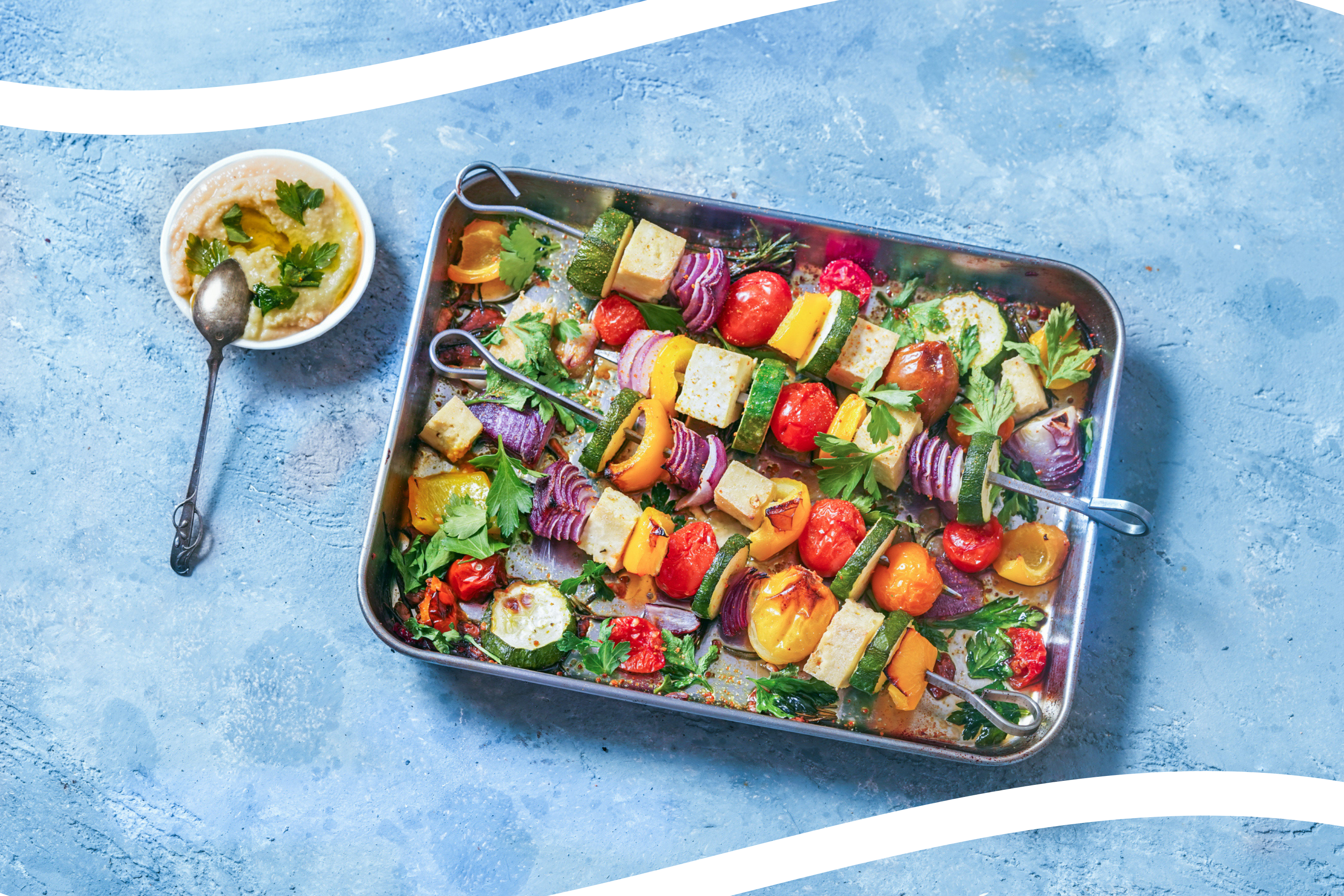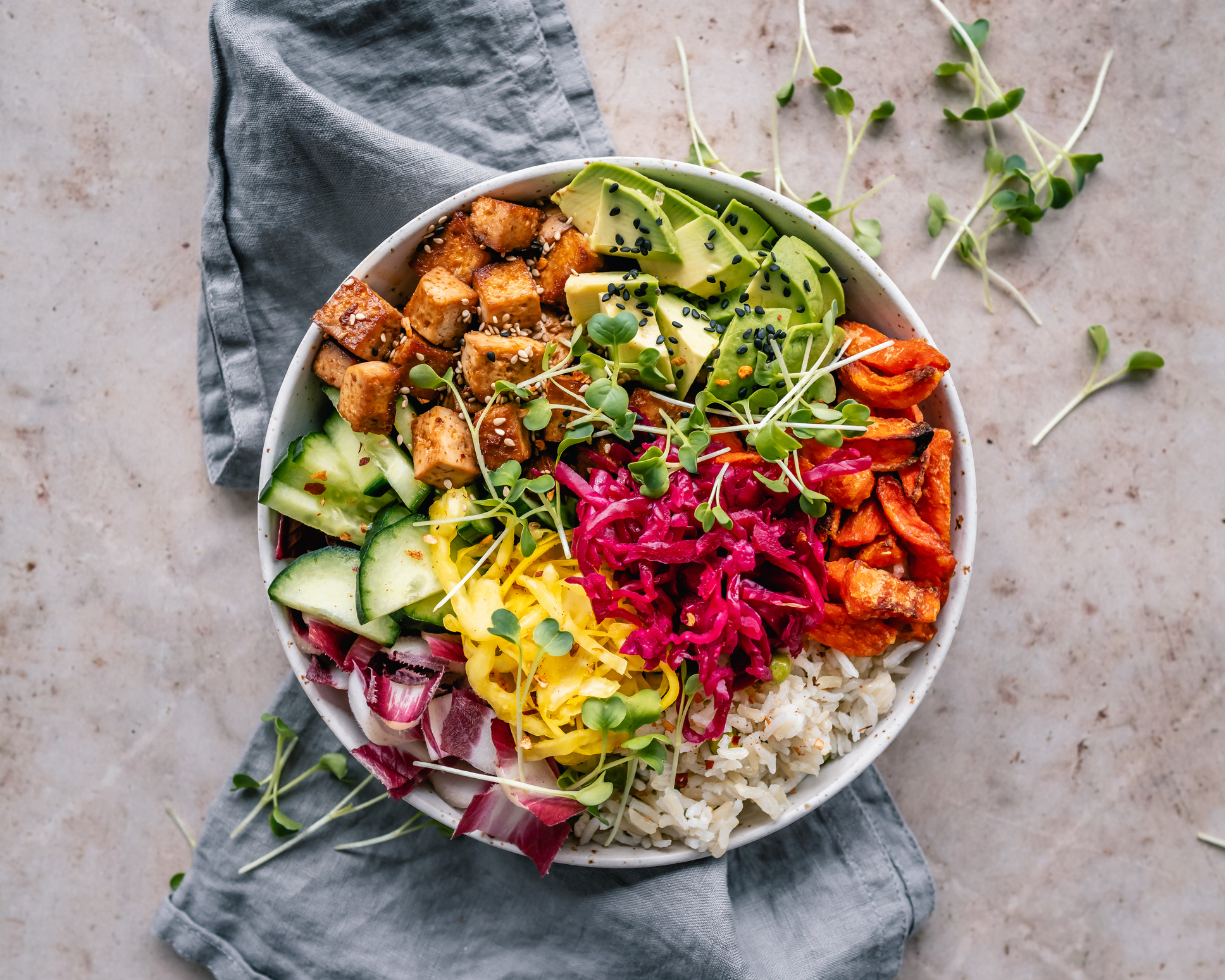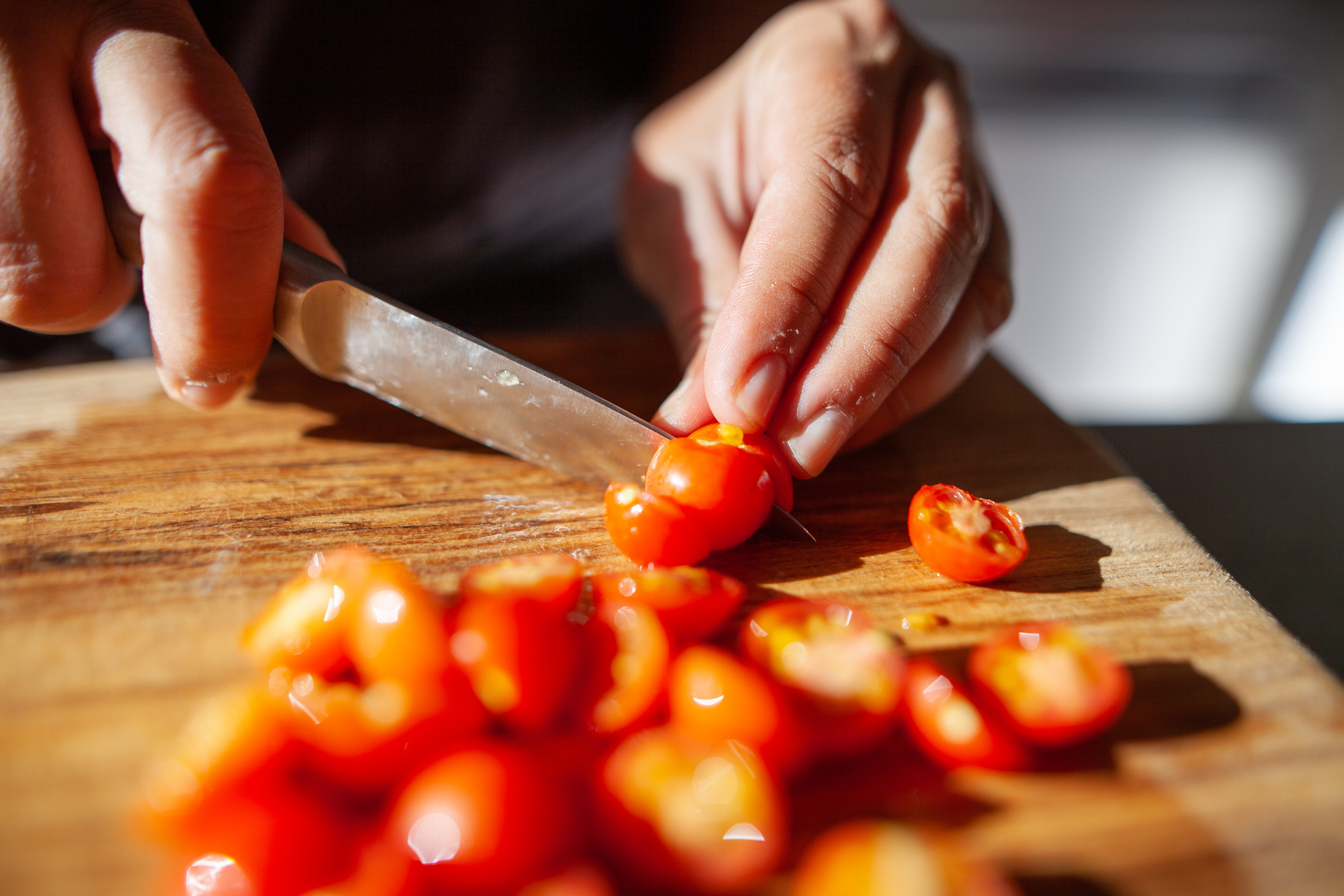What is the Noom diet - and what can you eat, how does it work and is it safe?
Looking for a new way to slim in 2020? The answer could be as simple as an app on your smartphone. Get the lowdown on the Noom diet...


Wondering what the super-popular Noom diet is all about? You're not the only one, millions of people are searching for tips and recipes to get involved in the eating plan every year.
Unlike many of the other diets out there - such as low-carb plans including the famous keto diet - Noom doesn't require those following the plan to stick to one particular food group. And it doesn't encourage restrictive eating either, which is one of the hardest parts of diets that work fast for weight loss.
We're all different after all. We all eat differently and have different goals in mind when it comes to changing up our eating habits. “Noom isn’t a universal or 'one size fits all' diet, but it personalises your calorie budget based on your age, current weight, height, activity levels, and other health and lifestyle factors," explains GP Dr Diana Gall.
What is the Noom diet?
Noom is a personalised diet plan available through an app, which you can download onto your phone or other device. Orientated for those looking to lose weight, the app acts as a nutritionist, health coach and personal trainer all in one.
“Noom is an app that aims to help you achieve lifestyle changes surrounding diet and exercise,” says Dr Diana Gall from iMeds. "It takes your details include age, current weight, height and activity levels, along with other health and lifestyle factors, to produce a plan and a calorie budget for your everyday life."
It's different from other traditional weight loss and fitness apps, however, as Noom aims to encourage behavioural changes that will lead to a change in the way users eat or exercise. The app shows you the best foods to eat, for example, rather than limiting foods and referring to some as "good" and others as "bad" or "off-limits". It also prompts you to read factoids about healthy lifestyle changes every day and tests you on them at the end.
While there's plenty of quizzes and bits to read (which many people may find they don't have time for), the educational element is vital in teaching users about how to change their eating and workout habits to achieve their goals in the long-term.
GoodtoKnow Newsletter
Parenting advice, hot topics, best buys and family finance tips delivered straight to your inbox.
How does it work?
Before you sign up to the Noom app, you have to answer some simple questions about your weight and how much you want to lose. The computer’s algorithm will work out your weight loss goal and a weekly plan on how to achieve it.
The app even offers access to a “health coach” so you can ask direct questions, such as what to pick for dinner in a restaurant or how to have a healthy takeaway. This is helpful for when you’re feeling stuck and it will also keep you on track.
Is the Noom diet plan good for weight loss?
Yes, the Noom diet makes it incredibly easy to track calories and what you’re eating which is great for weight loss. In fact, you’ll probably only need to spend around ten minutes a day on the app filling in your progress. Forgotten to add something in? Your health coach will prompt you to help you stay on track.
“Keeping a food diary can be incredibly helpful if you’re trying to lose weight,” confirms Dr Gall, resident GP at iMeds.
“Being able to see what you’re eating on a daily basis can help you to identify positive and negative eating habits, and can make you more aware of the calories that you consume. You may even be less likely to snack on foods with a high-calorie density as you’ll know that you need to record it, so you might opt for healthier snacks instead.”
And looking at the #NoomNerds hashtag on social media, results have been impressive, with a study claiming that out of 36,000 Noom users, almost 80% reported weight loss.
What can you eat on the Noom diet?
Foods classified as “green” foods are the ones that should make up the most of your diet, Dr Gall explains. "These have a low-calorie density and include fruits, vegetables, fat-free dairy options and some grains. They're often fibrous foods too, so they will keep you fuller for longer, and you may find you're not reaching for a snack 20 minutes after eating."
Also these types of foods pack in less calories so with many green foods, you can eat a high volume.
Green foods include:
- Spinach
- Tomatoes
- Carrots
- Apples
- Blueberries
- Low-fat cheese
- Almond milk
- Tofu
- Sweet potato
- Peas
- Brown rice
- Bananas
This traffic light-style of eating is very similar to the Banting diet, where those on the plan stick to lists of green foods for most of their meals - with the occasional yellow and light red food. However, unlike Banting, Noom is not a low-carbohydrate/high-fat plan.

“Yellow foods are ones that should be eaten moderately on the Noom diet, such as lean meats and fish," says Dr Gall. Whilst you don't want to cut them all out as many make up parts of a good high protein diet and help build block muscle, skin, hair and nails, it's a good idea to just watch your portion size."
Yellow foods include:
- Beans
- Couscous
- Olives
- Avocado
- Tuna
- Houmous
- Diet drinks
- White bread
- White rice
- Guacamole
- Salmon
“Red foods are the ones with a high-calorie density and the least nutritional value, so should only be eaten sparingly,” says Dr Gall. These are typically the processed type foods such as chips, hamburgers and pizza. Often, the red foods have a low water content and low fibre content, meaning they don't really keep you full for too long and the lack of water can mean more calories in less space. But a word of note with the below list; nuts are incredibly nutritious however they are calorie dense, so watch your portions with these.
Red foods include:
- Chips
- Mayo
- Juice
- Cake
- Chocolate
- Beer
- Orange juice
- Nuts
- Whole milk
- Pizza
- Hamburgers
- Crisps
How many calories can you eat on Noom?
How many calories you can eat on Noom is personalised on your age, gender, weight and height as well as lifestyle factors. But while this ‘calorie budget’ will differ from person to person, it will never be set below 1,200. This ensures you still meet your nutritional needs while reaching your overall goal of losing weight.
“Essentially, Noom diet UK combines your calorie budget alongside information on which foods you should aim to eat more of, and which to eat less of,” explains Dr Gall.
Does Noom provide meal plans?
The Noom diet doesn’t feature meals plans to follow from day to day, so if you’re looking for this type of diet plan, it might not be for you.
It does, however, have plenty of recipe ideas to pick from which can be helpful when putting together your own meals plans for the week – based on the foods you should be eating.
The upside of this is that provided you stick to your calorie budget, you have complete freedom to choose what meals to make.
What is the secret to losing weight using Noom?
“Noom’s plans are non-restrictive, meaning that no foods are off limits, but it works to reinforce healthy eating habits by using a traffic light system,” says Dr Gall.
This makes it a diet that has more chance of being successful long term. The less you feel like you're denying yourself, the more likely you are to stick to it.
One study by Noom found that 60% of diet plan users lost more than 5% of their body weight. And follow-up research showed that Noom users had a 6% average weight loss 65 weeks later – showcasing sustainable weight-loss.
https://www.youtube.com/watch?v=x24LKdlRltg
What are the downsides of the diet?
There's no secret method to Noom: how much weight someone can lose is really down to the individual. The Noom app doesn’t shop for you or cook for you – so if you don’t stick to the calorie limit, you won’t lose weight.
Plus, a lot of nutritional information is lacking on the app as it’s mainly just about calories.
Sana Khan is a nutritionist and founder of Avicenna Wellbeing. She explains, "Noom does not really show macro or micro nutrients". By macros, this means protein, fats and carbs and micronutrients are vitamins and minerals within foods.

"The focus is mainly on calories and the calories of the foods are subtracted from a daily total calorie. Calorie counting can be useful to track the food you were eating during the day however calories are not everything. It is so important to consider macro and micronutrients. In clinic I also look at hormone health, bloodwork, medical health status and family history."
And that's not all. “For most people, sticking to a calorie budget can be enough to lose weight, but it’s also important to know how much of each food group you should be consuming,” adds Dr Gall.
“For example, you may lose more weight by eating more protein and fibre than carbohydrates and fats, but by only counting calories, you might not know the actual nutritional value of the food you consume. The traffic light system that Noom offers is helpful for this, but it would also help you to know the nutritional value of each meal and snack that you record so you know if you need to increase or decrease certain food groups.”
Users leaving online reviews complain about the “teen speak” and amount of advice given in “quiz form”, which can grate after a while. But the main issues with the Noom diet seems to be with the scripted answers the so-called “personalised” health coach will give you. This is because the advice is from a computer algorithm, not a real person.
“Technology is fantastic, and some AI can be incredibly advanced, but qualified healthcare professionals still have their place, especially if you’re struggling to lose weight,” says Dr Gall.
Is the Noom diet safe?
Because the Noom diet focuses on changing behaviour and classifying foods and their calories through a traffic light system, it is a fairly safe dietary approach, says nutritionist Clarissa Lenherr at Bioniq.
“No major food groups are restricted in the Noom diet and they offer a personalised approach according to your intake, activity levels and gender."
It is also a diet that focuses on educating people about healthy eating. “The importance of high nutrient, energy and protein rich foods and how they can be helpful for weight loss, is highlighted.”
However, as there is no way to log nutrient intake on the app, Clarissa worries that users can’t ensure they’re getting all the micronutrients, vitamins and minerals they need to stay healthy.
“There is also some uncertainty about the health coaches they offer on the app – these are not registered nutritionists or dieticians, so their degree of education in nutrition may be limited,” says Clarissa.
She also raises the issue that there’s no way for the app to monitor or tailor your diet if you have an underlying health condition.
Despite this, Clarissa believes the Noom diet is safe to use overall. “It is safe to follow as they suggest, as long as you do not let your BMI fall below a healthy level and you are not struggling with any eating disorders,” she says.
And Dr Gall adds that although the app may be enough for some people to reach their goals, others still might need a second opinion. “If you struggle with your weight or have any questions about nutrition or diet, these are best directed towards a healthcare professional – preferably someone with experience in diet and nutrition,” she says.
How much does the Noom diet cost?
If you sign up, expect to pay out around £40 per month, for an average of four months, on the Noom diet plan.
But as with any other online service or app, be careful to check the terms and conditions properly before you sign up. Users regularly leave reviews about how tricky it can be to cancel the subscription and just deleting the app won’t work.
Is Noom really worth it?
If you have the money to spare and like a trend, then give it a go. The Noom diet UK has enough satisfied followers to confirm that if you use the app properly it can help you lose weight. It is worth remembering though that this is not your only option for this style of diet.
“There are free options available,” says Dr Gall. “If you’re struggling on your own, you can always make an appointment to see your doctor to discuss your concerns and difficulties."
"You may be referred to a nutritionist or dietician for advice. You can still create a record of your eating habits by using free apps, or just by writing your meals and snacks in a diary. The advantage to this is that you may have regular appointments to check your progress, so your doctor can intervene if they think there could be a problem.”
https://www.youtube.com/watch?v=IoDNA_qLsxk
Which is better: Weight Watchers or Noom?
There are no studies comparing Weight Watchers and the Noom diet and their efficacy, so it really comes down to which approach the dieter prefers, explains Clarissa.
“Both of these diets are similar in that they rank foods from good to bad – the Noom diet uses a traffic light system whilst Weight Watchers uses smart points,” she says.
“The Noom diet offers support for psychological factors that could be at play and might be stopping you from losing weight, for example looking at food habits.”
Through the Noom app you also have access to weekly one to one coaching calls with a health coach. “This can help you stay accountable and answer any questions,” says Clarissa.
“On the other hand, the digital Weight Watchers package benefits from offering a great community aspect, which may be a big draw for some individuals,” she says.
This may be particularly helpful for people who like to share their experiences with other individuals who are going through a similar weight loss journey, or those wanting first-hand tips and advice. New research by Weight Watchers found a third of people think they would give up their diet sooner without someone to support them along their journey.
Sana adds that although she is not an advocate for either diet, she does have a preference for one over the other.
“If I really had to choose one diet, I would choose Noom. This is because I don’t like to promote “low-fat/high sugar” diets that heavily rely on processed foods. I like to push my clients to cut back on processed foods and refined sugars.”

Freelance writer Lucy Gornall is the former health and fitness editor for various women’s magazines including Woman&Home Feel Good You. She has previously written for titles including Now, Look and Cosmopolitan, Woman, Woman's Own, Woman's Weekly and Chat. She lives and breathes all things fitness.